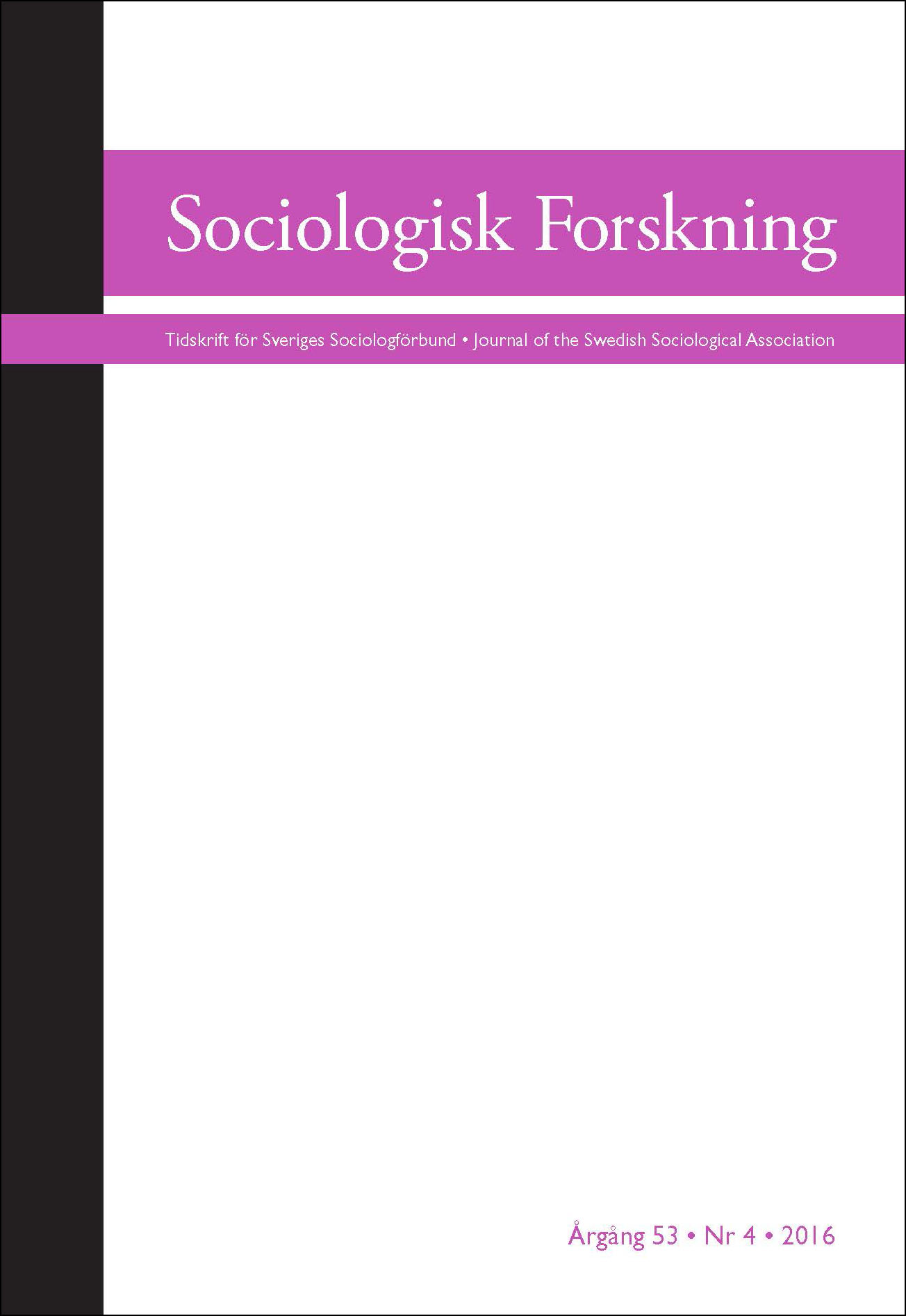Om kategorisering og symbolskmagtudøvelse i det sociale arbejde
Myten om de ressourcestærke forældre til børn med neuro-psykiatriske diagnoser
DOI:
https://doi.org/10.37062/sf.53.18270Nyckelord:
social work, categorization, conflictual collaboration, neuropsychiatric diagnosesAbstract
On categorization and symbolic power in social work: The myth of the resourceful parents to children with neuro-psychiatric diagnoses
Social workers often use the term resourceful about a certain group of parents to children with neuro-psychiatric diagnoses, e.g. autism spectrum disorder and ADHD. This paper discusses the consequences of this sort of stereotyping/categorization with particular regard to the collaboration between these parents and the social workers as they meet in the social services system, when the parents apply for help for their children. Drawing upon Pierre Bourdieu, it is suggested that the categorization resourceful is not only overly simplistic and a myth, but is straight out misguiding and complicates the interaction – in fact it represents an act of symbolic power. Based upon a six months long sociological field-work study it is shown, that even though social workers seem to acknowledge the difficult and grueling life-situation of the parents, they are first and foremost perceived as resourceful and knowledgeable but hence also as annoying, insufferable, demanding and basically unjustified, even though they have obvious legal rights. Parents and social workers alike described the collaboration as being conflictual and a struggle and the complex power-relations are discussed in the light of Bourdieu.
Downloads
Publicerad
Referera så här
Nummer
Sektion
Licens
Allt material i Sociologisk Forskning publiceras med omedelbar öppen tillgång (open access), under Creative Commons-licensen CC BY-NC-ND 4.0.
Allt innehåll i tidskriften är fritt tillgängligt utan kostnad och får för icke-kommersiella syften fritt läsas, laddas ned, kopieras, delas, skrivas ut och länkas. Innehållet får dock inte ändras. När innehållet används måste författare och källa anges. Upphovsrätten till innehållet tillhör respektive författare. Inga publiceringsavgifter tas ut.





